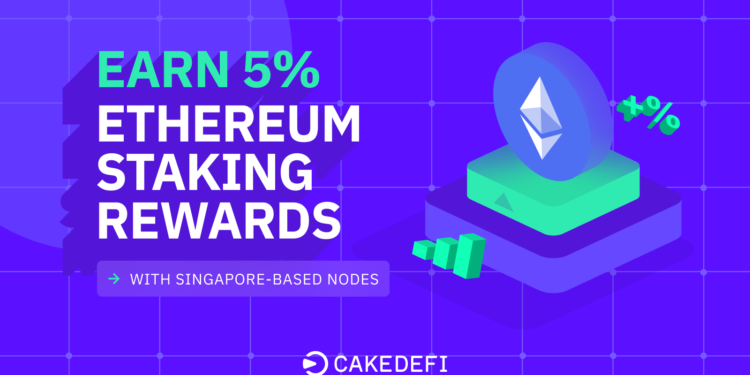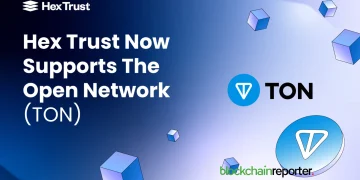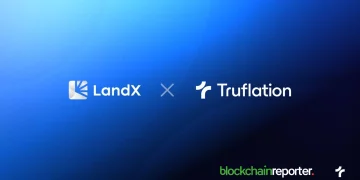Cake DeFi, the leading and fastest-growing fintech company based in Singapore that allows easy access to decentralized finance (DeFi), has introduced its most recent feature, which is referred to as Ethereum (ETH) staking. This feature comes with additional access to liquidity provided by a tradable token that can be sold on the open market. Many crypto exchanges and trading platforms do not plan to allow ETH unstaking until the Shanghai upgrade.
However, Cake DeFi believes that it was necessary for it to offer liquidity to its ETH stakers, which would be achieved via an open market. The recent Ethereum Merge, which took place in September and came to a successful conclusion, allowed Ethereum to make the move from a proof-of-work system to a proof-of-stake system. As a direct consequence of this, the “Beacon Chain” was integrated into the main chain of Ethereum, which mandates that nodes, also known as validators, place their funds in a deposit contract with a longer period.

Cake DeFi is a fully open and transparent fintech platform that is committed to making DeFi services and applications accessible to its users. This is accomplished by giving customers the ability to generate returns using their cryptocurrency holdings and other digital assets. Cake DeFi is subject to the laws and guidelines that are in place in Singapore on account of the fact that it is both operated and registered within that country.
A New Opportunity to Generate Significantly More Returns
Retail investors have the ability to store their ETH on the blockchain, which gives them the chance to validate transactions and earn additional ETH in the process. Unstaking is presently not enabled by the Ethereum network, consequently, investors will have to wait until the Shanghai upgrade (which could be another year or so) to be able to unstake their ETH. As was stated before, Cake DeFi will provide its ETH stakeholders with liquidity, which will be accomplished through the use of an open market.
Users of Cake DeFi’s ETH Staking will have the opportunity to earn profits of approximately 5% on an annual percentage basis. In comparison to ETH staking which does not use compounding, Cake DeFi’s ETH staking will have returns that are automatically compounded once every 12 hours, which will result in much higher returns. Users of Cake DeFi’s ETH staking will soon have the ability to unstake via a token that is marketable on the open market, eliminating the need for them to wait for the Shanghai update.
According to Dr. Julian Hosp, Co-Founder and CEO of Cake DeFi, “ETH Staking is the latest addition to our popular Staking service. We made a deliberate decision to host our own nodes in Singapore. At the moment, Ethereum nodes are mostly concentrated in North America and Europe. Hosting our own Singapore-based nodes will boost the confidence of investors and developers in the region and support the spirit of decentralization.”
Enhancing Financial Inclusion to Make DeFi More Acceptable
Cake DeFi’s aim is to educate and inform people all around the world about crypto and DeFi in a manner that is clear, simple, and uncomplicated to understand. It accomplishes this objective by empowering its users to make use of the potential offered by DeFi, in addition to providing those users with the opportunity to do so.

According to the most recent Cake DeFi’s Transparency Report for Q2 2022, the firm has enjoyed remarkable growth and had its biggest quarter ever in Q2 2022 in terms of the number of users, funded accounts, and payouts. It crossed one million customers and has handed out a total of $375 million in customer rewards by the time the second quarter of 2022 came to a close, in spite of the bearish market outlook.
Cake DeFi was able to accomplish all of these goals by developing a user-friendly and risk-free platform that enables customers to quickly and easily access various DeFi services, including staking, lending, borrowing, and liquidity mining. In the immediate term, the key objectives of Cake DeFi are to continue growing its user base and to continue boosting financial inclusion in order to make DeFi more reachable for users as well as businesses.























